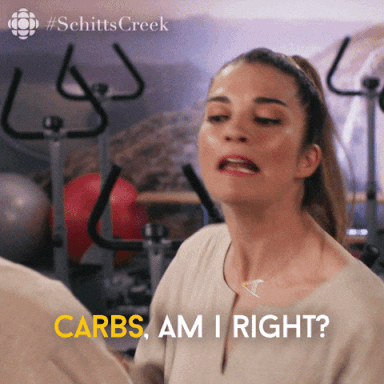Berberine Weight Loss, Healthier From Helping Others, New Cause Identified For High Blood Pressure, Chronic Stress Can Promote High-Calorie Food Choices, Do This One Thing Every Morning.
The Full Panel meets your TLDR (Too Long; Didn’t Read) needs by delivering the latest medicine & health news in a nutshell. 🥜
Move over Ozempic and Tirzepatide, berberine is here!?

Gist: Berberine, a natural compound used in traditional Chinese and Ayurvedic medicine, has gained attention as a potential weight loss supplement. Advocates suggest it may suppress appetite, lower cholesterol, aid gut health, and control blood sugar and blood pressure.
Nitty-Gritty: However, experts warn there is insufficient data on its effectiveness and safety. Unlike FDA-regulated (or Health Canada-regulated) drugs like Ozempic, berberine is not closely regulated, potentially leading to inconsistencies in dosage and quality- This actually goes for many supplements. It is also yet to be proven as effective as other weight loss drugs through clinical studies. Berberine's side effects may include gastrointestinal distress and allergic reactions, and it could interact with certain medications. There is limited information about its long-term risks or effects during pregnancy and breastfeeding.
Big Picture: Health experts emphasize the importance of consulting with medical professionals when considering such supplements. Additionally, consult a health care professional when seeking weight loss assistance. There are guidelines for weight loss for a reason – They have been evaluated and assessed for their safety and efficacy. That's not to say things outside guidelines do not work for some, but do your homework prior to making these choices. One might consider consulting with a naturopath, in addition to your family provider, for additional input regarding supplements and whether they're right for you. 🤓
Original source: here.
Helping others promotes health

Gist: A recent study involving over 7,000 middle-aged and older Canadians discovered that social participation, including volunteer work and recreational activities, is associated with successful aging.
Nitty-Gritty: The researchers defined successful aging as freedom from severe conditions that hinder daily activities and self-reported happiness, good physical health, and mental health. Roughly 72% of those who engaged in social activities at the start of the three-year study were still aging successfully, while only two-thirds of those who didn't participate in these activities were aging successfully. Adjusted for sociodemographic factors, those engaged in social activities were 15% to 17% more likely to maintain excellent health.
Big Picture: The study suggests that "social prescribing," or encouraging older adults to participate in social activities, could support physical, cognitive, mental, and emotional well-being. The research used a more inclusive definition of successful aging, incorporating both objective and subjective measures. We think this is a likely something anyone of any age could benefit as feeling connected in at the core of being human!
Original source: here.
New cause found for common type of high blood pressure

Gist: A new discovery pinpoints a gene variant in a benign nodule as a cause for intermittent, severe hypertension in some patients. The variant affects a protein called CADM1, disrupting cell communication and leading to overproduction of the hormone aldosterone, responsible for controlling salt levels. This intermittent overproduction can cause hypertension.
Nitty-Gritty: Detecting this variant has been challenging due to fluctuations in aldosterone release throughout the day. Researchers found this form of hypertension could be cured by removing one of the two adrenal glands, leading to resolution of the previously severe hypertension. Experts recommend a 24-hour urine test to measure aldosterone levels and diagnose more cases. Currently, fewer than 1% of people with aldosterone-induced hypertension are identified, with the majority of hypertension causes remaining unknown. The study, undertaken by a team at Queen Mary University of London, included collaborations with international laboratories.
Big Picture: These findings can be helpful in further tailoring treatment for specific groups of patients and avoiding the use of other treatments that may not be effective.
Original source: here.
How chronic stress can promote high-calorie food choices

Gist: Researchers at the Garvan Institute of Medical Research have found that stress combined with a high-calorie diet can drive overeating, cravings for sweet foods, and excessive weight gain.
Nitty-Gritty: The study revealed that chronic stress overrides the brain's satiety response, continuously triggering reward signals in a region called the lateral habenula and promoting consumption of highly palatable food. The central player in this process is the molecule neuropeptide Y (NPY), naturally produced by the brain in response to stress. When NPY was blocked in the brains of stressed mice on a high-fat diet, the animals ate less and gained less weight. Furthermore, stressed mice on a high-fat diet showed a significantly stronger preference for sweetened water compared to unstressed mice.
Big Picture: The researchers conclude that chronic stress can compromise healthy energy metabolism and promote unhealthy eating habits. The study emphasizes the importance of maintaining a balanced diet during stressful periods to prevent unhealthy weight gain– Easier said than done, however, perhaps the awareness of knowing why we crave such foods can help us choose other alternatives that better serve our bodies.
Original source: here.
How to Feel Energized & Sleep Better with One Morning Activity
Run time: 6mins 31secs
Dr. Andrew Huberman discusses how you can feel more energized and sleep better by doing one thing every morning—getting bright sunlight. Dr. Huberman is a tenured professor of neurobiology and ophthalmology at Stanford University School of Medicine and host of the Huberman Lab Podcast.
Interested in previous newsletters or other articles we’ve published? Check them out here at: thefullpanel.com
Got a question for us? Suggestions for content you’d like to see? Feedback? E-mail us at: hello@mail.thefullpanel.com
